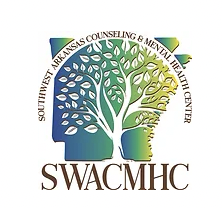Overview
Southwest Arkansas Counseling and Mental Health Center is a mental health treatment center for people seeking treatment near Howard County. As part of their treatment modalities for recovery, Southwest Arkansas Counseling and Mental Health Center provides couples/family therapy during treatment. Southwest Arkansas Counseling and Mental Health Center is located in Nashville, Arkansas, accepting cash or self-payment for treatment.
Southwest Arkansas Counseling and Mental Health Center at a Glance
Payment Options
- Cash or self-payment
- Medicaid
- Medicare
- State-financed health insurance plan other than Medicaid
- Private health insurance
Assessments
- Screening for tobacco use
- Comprehensive mental health assessment
Age Groups
- Children/adolescents
- Young adults
- Adults
- Seniors
Ancillary Services
- Case management service
- Court-ordered outpatient treatment
- Diet and exercise counseling
- Family psychoeducation
- Illness management and recovery
Treatment At Southwest Arkansas Counseling and Mental Health Center

Conditions Treated
Mental health treatment:
Mental health treatment provides a safe and structured environment where individuals can receive professional care and support for their mental health challenges. Within the facility, trained therapists, counselors, and medical staff work together to create personalized treatment plans tailored to each person's needs. Patients might participate in a variety of therapies, including individual counseling, group therapy, and possibly medication management. The goal is to equip individuals with the tools and strategies they need to cope with their conditions and lead fulfilling lives.

Levels Of Care
Outpatient:
Outpatient treatment at rehab centers provides adaptable therapy schedules, usually spanning 1-3 hours weekly, enabling participants to maintain their everyday routines while undergoing treatment. On the other hand, intensive outpatient programs require a more dedicated time investment, frequently around 9-15 hours a week, delivering a deeper therapeutic experience without the commitment of inpatient residency.

Treatment Modalities
Couples/family therapy:
Couples Therapy during rehab is a specialized counseling program designed to support couples who are navigating the challenges of addiction recovery together. This form of therapy provides a safe and structured environment where couples can address the impact of substance abuse on their relationship and work towards healing and growth as a team. By addressing both individual and shared issues, couples in rehab can strengthen their bond and increase their chances of sustained recovery, fostering a healthier and happier future together.
Group counseling:
Group Therapy is a therapeutic space where individuals battling addiction come together to share experiences, gain insights, and support one another on their journey to recovery. Facilitated by trained professionals, this setting fosters communal healing and empowers participants to overcome the challenges of addiction through collective strength and understanding.
Cognitive behavioral therapy:
Cognitive Behavioral Therapy (CBT) is a evidence-based psychological treatment that focuses on identifying and challenging negative thought patterns and behaviors. It aims to develop coping strategies and promote healthier thinking to address a variety of mental health issues, such as depression, anxiety, and stress. CBT is typically short-term and goal-oriented, emphasizing the role of thought processes in influencing emotions and behaviors.
Eye Movement Desensitization and Reprocessing therapy:
EMDR is a therapy method initially designed to address trauma. During an EMDR session, patients engage in eye movements reminiscent of REM sleep, either by following a therapist's moving finger or tracking a light bar. These repetitive eye movements aim to aid the brain in reprocessing memories, potentially diminishing the severity of traumatic recollections. As a result, related memories may also heal, leading patients to feel notably more at ease, balanced, and emotionally composed.
Abnormal involuntary movement scale:
The AIMS serves as a 12-criteria tool employed by clinicians to assess the severity of dyskinesias, particularly in facial expressions, limb motions, and torso movements, observed in patients undergoing neuroleptic drug treatment. Additionally, it evaluates the overall repercussions, the extent of disability incurred, and the patient's awareness and distress regarding these movements. This assessment tool finds extensive application in research investigations concerning antipsychotic medications to screen for tardive dyskinesia. Its simple framework and rapid evaluation procedure facilitate routine clinical assessments conducted by healthcare professionals or qualified individuals.
Ancillary Services
Languages
- Sign language services for the deaf and hard of hearing
Special Programs
- Persons experiencing first-episode psychosis
- Persons 18 and older with serious mental illness (SMI)
Contact Information
DISCLAIMER: The facility name, logo and brand are the property and registered trademarks of Southwest Arkansas Counseling and Mental Health Center, and are being used for identification and informational purposes only. Use of these names, logos and brands shall not imply endorsement. BetterAddictionCare.com is not affiliated with or sponsored by Southwest Arkansas Counseling and Mental Health Center.



